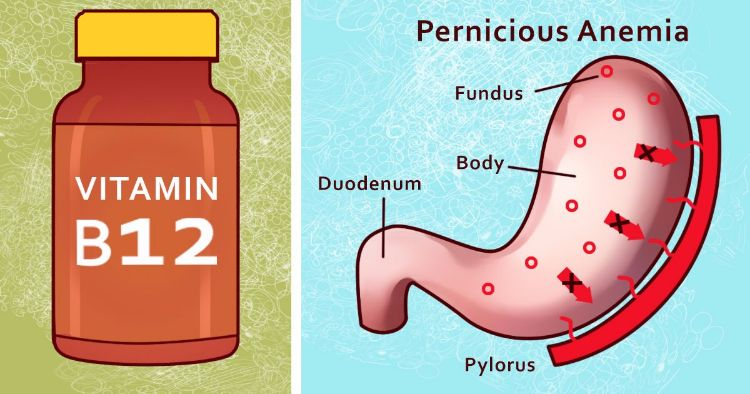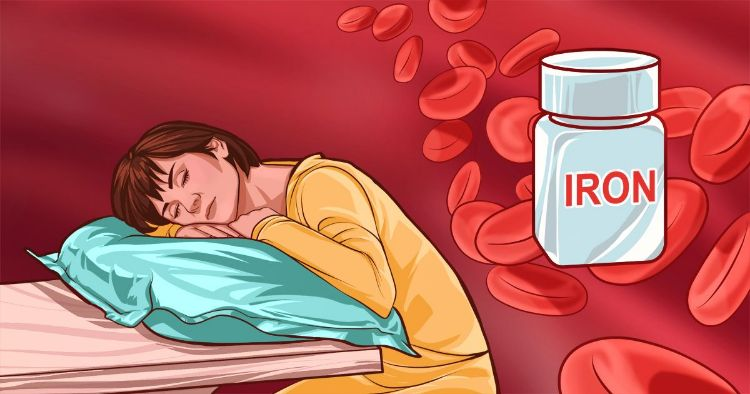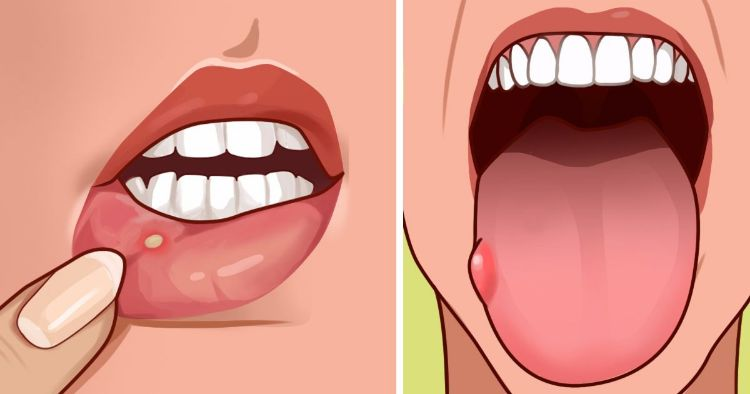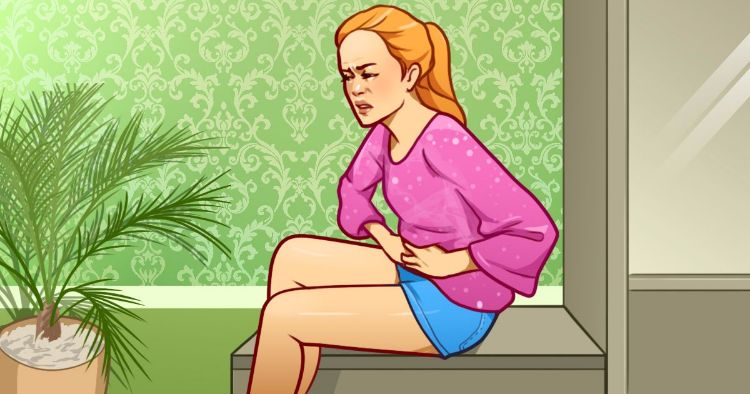Maintaining proper nutrition is essential for a healthy lifestyle, and that starts with getting enough vitamins. Yet, many people suffer from vitamin deficiencies without even realizing it. The primary reason for this is often poor dietary habits, but even those with well-balanced diets can face deficiencies due to factors like food storage, processing, and even how fresh the food is.
In this article, we’ll break down the most common vitamin deficiencies, their symptoms, and how you can address them through your diet. Remember, while supplements are available, the best source of vitamins is through whole, natural foods. If you suspect you have a deficiency, always consult your doctor to confirm the issue and develop a personalized treatment plan.
1. Vitamin B12 Deficiency

Vitamin B12 is essential for producing DNA, forming red blood cells, and supporting brain function. The surprising fact about vitamin B12? Our bodies don’t produce it naturally, so we rely solely on our diets to get enough of this vital nutrient.
Signs of Vitamin B12 Deficiency:
- Fatigue and weakness
- Tingling or numbness in the hands and feet
- Difficulty thinking clearly (brain fog)
- Mood swings or depression
How to Fix It:
You can increase your intake of B12 by eating more animal products like beef, poultry, eggs, and dairy. For vegetarians and vegans, fortified foods such as plant-based milks or cereals, as well as supplements, can help maintain proper B12 levels.
2. Magnesium Deficiency
Magnesium is crucial for many bodily functions, including regulating muscle and nerve function, blood sugar levels, and blood pressure. It also plays a role in detoxification and may reduce the risk of migraines and cardiovascular diseases. Unfortunately, 80% of the population is magnesium-deficient.
Signs of Magnesium Deficiency:
- Muscle cramps or spasms
- Fatigue or weakness
- Abnormal heart rhythms
- Anxiety or irritability
How to Fix It:
Eat more magnesium-rich foods such as leafy green vegetables (spinach, kale), nuts (almonds, cashews), seeds (pumpkin, chia), and whole grains. Supplements can also be effective but should be taken under medical supervision.
3. Vitamin D Deficiency
Vitamin D, often called the “sunshine vitamin,” is produced by your body when exposed to sunlight. It plays a significant role in bone health, immune function, and mood regulation. However, with more people wearing sunscreen and spending time indoors, vitamin D deficiencies have become increasingly common.
Signs of Vitamin D Deficiency:
- Bone pain or weakness
- Frequent infections
- Depression or mood changes
- Fatigue
How to Fix It:
The best way to increase your vitamin D levels is through sun exposure—about 10-30 minutes a few times per week. You can also incorporate more fatty fish (like salmon and tuna), egg yolks, and fortified foods (like milk or orange juice) into your diet. If necessary, consider a vitamin D supplement, especially in winter months.
4. Iron Deficiency

Iron is vital for producing red blood cells, which carry oxygen throughout the body. Low iron levels can lead to anemia, a condition that makes it difficult for your body to get enough oxygen.
Signs of Iron Deficiency:
- Extreme fatigue or weakness
- Pale skin
- Shortness of breath
- Dizziness or lightheadedness
How to Fix It:
To boost iron levels, eat more red meat, poultry, and seafood. Plant-based sources include lentils, beans, tofu, and spinach. Pairing plant-based iron sources with vitamin C-rich foods (like citrus fruits or tomatoes) can help your body absorb the iron more efficiently.
5. Calcium Deficiency
We often associate calcium with strong bones and teeth, but it also plays a role in muscle function, nerve signaling, and heart health. Calcium deficiency becomes more common with age, especially for women.

Signs of Calcium Deficiency:
- Numbness or tingling in the fingers
- Muscle cramps
- Brittle nails
- Weak or thinning bones
How to Fix It:
Dairy products like milk, yogurt, and cheese are the best-known sources of calcium. Non-dairy options include fortified plant milks, leafy greens, and almonds. If you’re not getting enough calcium from your diet, supplements can also help fill the gap.
6. Folate (Folic Acid) Deficiency
Folate is particularly important for pregnant women as it helps prevent neural tube defects in developing babies. It also plays a key role in cell division and the production of red blood cells.

Signs of Folate Deficiency:
- Fatigue
- Gray hair
- Mouth sores
- Poor growth
How to Fix It:
Folate is found in dark green vegetables (spinach, broccoli), legumes (lentils, peas), and fortified grains. Because folate is water-soluble and not stored long-term in the body, regular consumption is essential.
7. Vitamin C Deficiency
Vitamin C is well-known for its role in supporting the immune system, but it’s also crucial for collagen production, which keeps skin, bones, and blood vessels healthy. Low vitamin C levels can lead to scurvy, a serious health condition that causes bleeding gums and joint pain.

Signs of Vitamin C Deficiency:
- Dry, rough skin
- Slow wound healing
- Bleeding gums
- Joint pain
How to Fix It:
Boost your intake of vitamin C by eating more fruits and vegetables, particularly citrus fruits, strawberries, bell peppers, and broccoli. Fresh produce is the best source, as processing and cooking can reduce vitamin C content.
8. Potassium Deficiency
Potassium is essential for muscle function, heart health, and maintaining proper fluid balance in the body. Low potassium levels can result in a range of health problems, from muscle weakness to heart irregularities.

Signs of Potassium Deficiency:
- Muscle cramps or spasms
- Constipation
- Heart palpitations
- High blood pressure
How to Fix It:
Bananas, potatoes, avocados, and spinach are all excellent sources of potassium. If you have low levels, incorporating more of these foods into your diet can help restore balance.
Conclusion: Address Vitamin Deficiencies for Better Health
Vitamin deficiencies can lead to a variety of health problems, but the good news is they’re often easy to fix with dietary adjustments. By recognizing the symptoms of common deficiencies and including more nutrient-rich foods in your diet, you can boost your overall well-being. Always consult with your healthcare provider to confirm any deficiencies and determine the best treatment plan for your individual needs.


